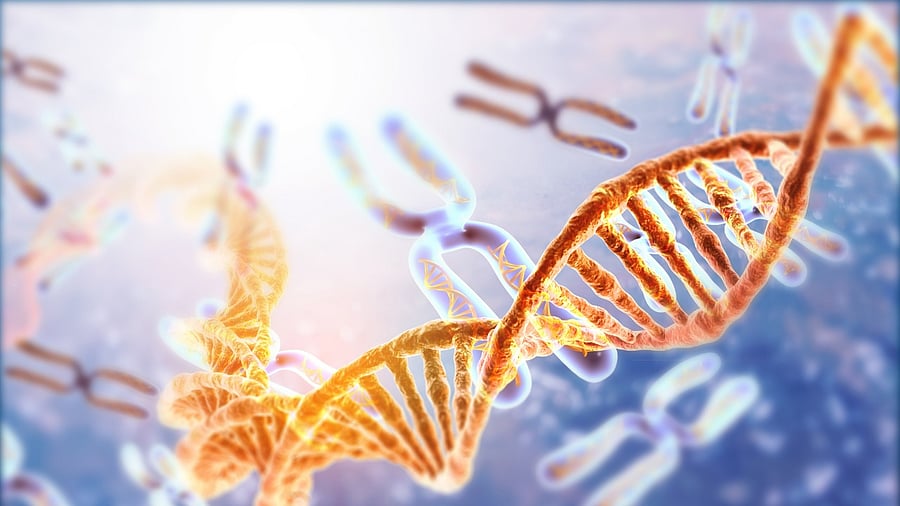
Representative image
Credit: iStock Photo
New Delhi: Indian biologists on Tuesday announced establishing a genome database of 10,000 unrelated but "healthy" Indians from 83 diverse population groups, creating a unique platform that in future can kickstart 'precision medicine'.
The five-year research effort has uncovered over 18 crore unique differences in DNA, of which 60 per cent are considered "rare", and captured “the genetic diversity of one of the highly under-represented populations in the global genomics landscape.”
“The GenomeIndia project provides a basis to understand the genetic diversity of healthy Indians and gives a perspective to evaluate the genetic variations of diseases in future,” Rajesh Gokhale, Secretary, Department of Biotechnology, which spearheaded the project, told DH.
The database is likely to accelerate research on precision medicine, which is to provide personalised treatment for an individual or tailoring treatments for specific population groups.
An in-depth understanding of genetic factors underlying different diseases are essential to attain such a goal. This is where the GenomeIndia project is expected to come handy.
For instance, in cancer studies if certain genetic changes are found among Indians, one can go back to the database and check if those are disease-causing genes or whether such mutations are present in healthy individuals too.
“It is baseline data that will be used by scientists to identify disease-specific mutations and to take forward development of India-specific precision medicine,” said Nidhan Biswas at National Institute of Biomedical Genomics, Kalyani, one of the key scientists involved in the pan-India project.
The NIBMG is one of the 20 institutes – including three from Bengaluru - that formed a consortium to create the database.
The Bengaluru institutes involved are Indian Institute of Science, National Institute of Mental Health and Neurosciences and National Centre for Biological Sciences.
Blood samples were collected from over 20,000 people belonging to 83 ethnic groups and whole genome sequencing was carried out on half of them. Following the sequencing, quality checks were conducted as a result of which the final database contains genome sequences from 9,772 individuals – 4,696 males and 5,076 females.
Alongside the genome information, the database includes over 30 health indicators for each person, ranging from weight, height, and blood pressure to tests covering blood sugar, lipid levels, and liver and kidney function.
Despite India being the world’s most populous nation with over 144 crore people from 4,600 genetically distinct groups, the genetic studies globally remains Euro-centric due to lack of India-specific genome diversity data.
“This project provides a unique genetic signature for the Indian population. It opens up many exciting possibilities in translational research, besides providing a shot in the arm for genetic studies in India,” said Analabha Basu from NIBMG, another key scientist.
“A direct outcome of the GenomeIndia data is decoding extensive genetic diversity from Indian population that has been uncaptured until now. Such research will help to deepen our understanding of the genetic basis of different diseases,” the scientists reported in Nature Genetics.
“This will help address health disparities that arise owing to a combination of sociocultural and environmental variations in various Indian population groups...The data will improve disease diagnostics, predict the genetic basis of drug responses, and kickstart precision medicine efforts in India," they added.
